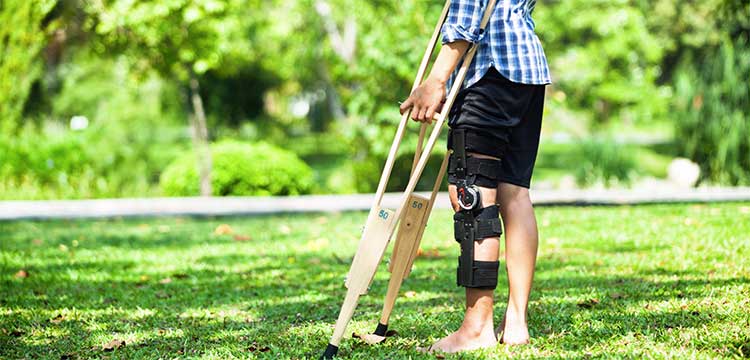
Knee pain can significantly impact your quality of life, making it difficult to perform everyday activities. While knee replacement surgery may be the recommended course of action for severe cases, there are several non-surgical alternatives that can help alleviate pain and improve mobility. In this comprehensive guide, we will explore various non-surgical knee replacement alternatives that you can consider to manage your knee pain effectively. You can also click over here to explore more about knee replacement alternatives.
1. Physical Therapy
Physical therapy is often recommended as a non-surgical option for treating knee pain. A licensed physical therapist can develop a customized treatment plan to help improve your knee's strength, flexibility, and range of motion. Some benefits of physical therapy for knee pain include:
- Reduced pain and inflammation
- Improved mobility and function
- Prevention of further knee damage
- Enhanced overall quality of life
Key Takeaway:
Physical therapy can be an effective non-surgical alternative for managing knee pain and improving knee function.
2. Weight Management
Excess weight can put added stress on your knees, leading to pain and discomfort. By maintaining a healthy weight through proper diet and regular exercise, you can reduce the strain on your knees and alleviate pain. Some benefits of weight management for knee pain include:
- Reduced pressure on the knee joints
- Improved mobility and range of motion
- Decreased risk of developing osteoarthritis
- Enhanced overall joint health
Key Takeaway:
Managing your weight can help reduce knee pain and improve your overall joint health.
3. Injections
Certain types of injections can provide temporary relief from knee pain by reducing inflammation and lubricating the joint. Some common types of injections used for knee pain include:
- Corticosteroid injections: Help reduce inflammation and pain
- Hyaluronic acid injections: Improve joint lubrication and cushioning
- Platelet-rich plasma (PRP) injections: Promote tissue healing and regeneration
Key Takeaway:
Injections can be a non-surgical option for managing knee pain and improving joint function, providing temporary relief for individuals with knee osteoarthritis.
4. Bracing
Wearing a knee brace can help provide support and stability to the joint, reducing pain and improving function. Knee braces come in various types, including:
- Prophylactic braces: Prevent injuries during physical activities
- Functional braces: Support and stabilize the knee after an injury
- Unloader braces: Relieve pressure on the affected side of the knee
Key Takeaway:
Using a knee brace can help reduce pain, improve stability, and enhance function in individuals with knee osteoarthritis or injuries.
5. Supplements and Alternative Therapies
Several supplements and alternative therapies are believed to help reduce knee pain and improve joint health. Some popular options include:
- Glucosamine and chondroitin: Support joint health and reduce pain
- Turmeric: Natural anti-inflammatory properties can help with pain relief
- Acupuncture: Stimulates the body's natural healing response to alleviate pain
- Massage therapy: Relieves muscle tension and improves circulation around the knee joint
Key Takeaway:
Supplements and alternative therapies may offer additional relief for individuals seeking non-surgical options for managing knee pain.
6. Low-Impact Exercise
Engaging in low-impact exercises, such as swimming, cycling, or yoga, can help strengthen the muscles around the knee joint without putting excessive strain on the joint itself. Some benefits of low-impact exercise for knee pain include:
- Improved joint flexibility and range of motion
- Enhanced muscle strength and endurance
- Reduced pain and stiffness
- Support for overall joint health
Key Takeaway:
Low-impact exercises can be a safe and effective way to manage knee pain and improve joint function without causing further damage.
Conclusion
While knee replacement surgery may be necessary for some individuals with severe knee pain, exploring non-surgical alternatives first can help alleviate symptoms and improve quality of life. By working with healthcare professionals, such as physical therapists, orthopedic specialists, and nutritionists, you can develop a comprehensive treatment plan tailored to your needs. Whether it's physical therapy, weight management, injections, bracing, supplements, alternative therapies, or low-impact exercise, there are various non-surgical options available to help you manage knee pain effectively.

:max_bytes(150000):strip_icc()/jetted-bath-tub-getty-0522-2000-3beb381b1ed447b28427cce8e2857802-0823-c36eefa326a9495caee32be25341eaa2.jpg)





